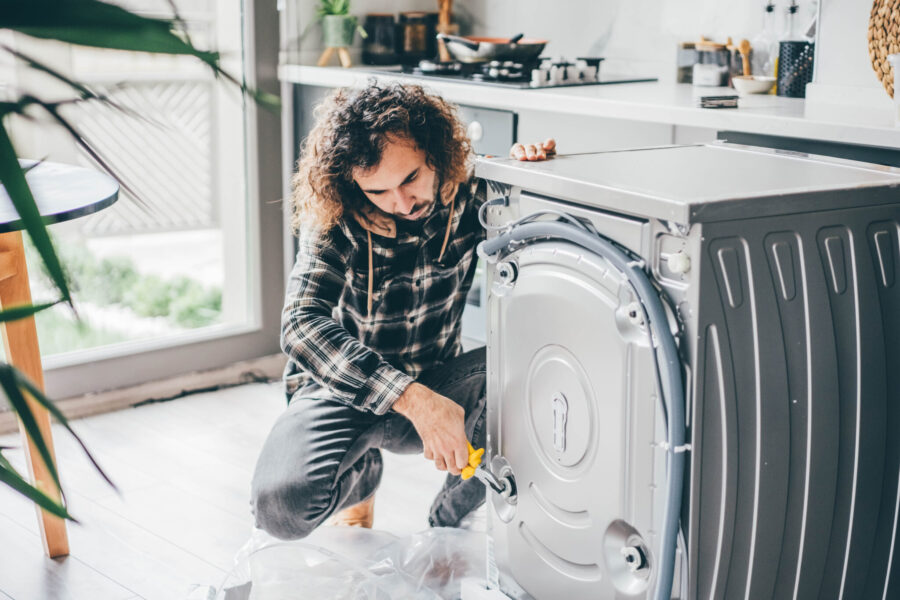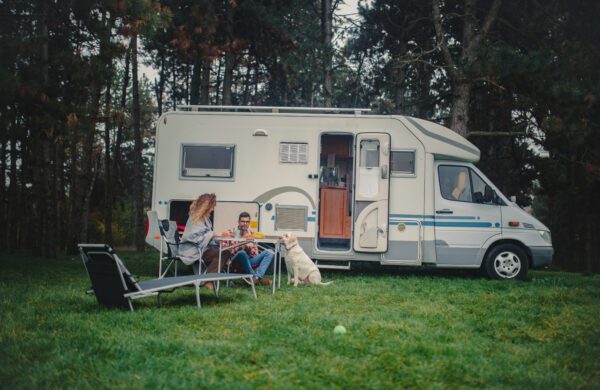Your refrigerator stops working; your dishwasher dies; your air conditioner goes kaput. When you contact your homeowners’ insurance company, you find out that your policy doesn’t cover malfunctioning home appliances. Now you’re facing massive out-of-pocket costs. To avoid a scenario like this, consider securing home insurance for appliances.
How much do home appliances cost?
It’s easy to take your home appliances for granted when they’re working well. When they stop working, you’ll realize how much you depend on them. Then, you’ll find out how expensive they are.
According to Experian, it typically costs around $10,000 to buy a new set of home appliances. However, prices vary significantly depending on the model you select. For example, a refrigerator could cost anywhere from $430 to $10,600, whereas a dishwasher could run from $330 to $1,900, and a range with a combined stove and oven could cost $410 to $7,500.
Replacing an air conditioner can be especially expensive. According to Architectural Digest, the cost will depend on several factors (including the size and type), but you can expect to pay between $3,800 and $7,500.
Many Americans Are Unprepared for Unexpected Costs
When appliances unexpectedly stop working, many American households have trouble coming up with the money needed to replace them. According to Bankrate, only 43 percent of Americans say they could cover an emergency expense of $1,000 or more using funds from their savings accounts.
Since many appliances cost more than $1,000 – sometimes much more – homeowners may find themselves using a credit card to cover the costs. However, that leads to higher costs in the form of interest, not to mention the hit to your credit score.
Home Insurance Coverage for Appliances
If a covered peril damages or destroys your home appliances, your homeowners’ insurance should cover the loss, as per the policy terms. According to the Insurance Information Institute, the most popular homeowners’ insurance policy is the HO-3 policy, which covers 16 perils:
- Fire or lightning
- Smoke
- Windstorm or hail
- Explosions
- Riot or civil commotion
- Damage caused by aircraft
- Damage caused by vehicles
- Vandalism or malicious mischief
- Theft
- Volcanic eruption
- Falling object
- Weight of ice, sleet or snow
- Accidental discharge or overflow of water or steam from a household appliance or from within a plumbing, heating, air conditioning, or automatic fire-protective sprinkler system
- Sudden and accidental tearing apart, cracking, burning or bulging of a steam or hot water heating system, AC or automatic fire-protective system
- Freezing of a household appliance or plumbing, heating, air conditioning or automatic fire-protective sprinkler system
- Sudden and accidental damage from artificially generated electrical current
This means your homeowners’ insurance should provide coverage if a fire destroys your appliances. Likewise, you’ll have coverage if criminals break into your home and vandalize your appliances.
Some perils include damage caused by appliances, but this does not mean you have coverage for these appliances. For example, homeowners’ insurance policies typically provide coverage for accidental overflow of water from a household appliance. If your washing machine overflows and damages your floors, your policy should cover the damage to your floors. However, your home insurance policy typically won’t cover the cost of a new washing machine.
Coverage for Appliances That Stop Working
Sometimes, appliances just stop working. This could be due to improper maintenance or because they were faulty in some way. It could also be due to normal wear and tear. After all, you cannot expect your home appliances to last forever. According to This Old House, dryers and refrigerators have an expected life of about 13 years, whereas you can expect gas ranges to last for 15 years. Dishwashers only last for about nine years.
If your appliances stop working due to age, a lack of maintenance or a mechanical issue, a standard homeowners’ insurance policy will not provide coverage. As a result, you may have to pay for the cost of a new appliance yourself. However, there are other coverage options available.
Manufacturer Warranties
When you purchase an appliance, you will likely have the option to pay extra for a manufacturer’s warranty. If your appliance malfunctions while the warranty is active, you can contact the manufacturer to receive a repair or replacement.
One of the biggest downsides is that these warranties often only provide coverage for one year. Since appliances should last for much longer than a single year, there is a good chance you’ll never need to use your warranty. However, if the appliance is faulty, a warranty may make it easier to receive a repair without having to pay out-of-pocket, making it worthwhile.
Another drawback is you may not have the option to purchase a manufacturer warranty. For example, if you buy a house, you will usually be unable to buy a manufacturer’s warranty for the appliances that come with it, even if those appliances are almost new.
Home Appliance Insurance
Home appliance insurance, also called a home warranty, provides another way to protect your appliances.
You can purchase home appliance insurance to cover various appliances, including your refrigerator, air conditioner, range, dishwasher, washer and dryer. If a covered appliance stops working, you can use your home appliance insurance to repair or replace the appliance.
Since the details of coverage vary, you’ll need to read your policy carefully.
- Which appliances does it cover?
- Which perils does it cover?
- Are there any exclusions?
- If a covered appliance breaks down, what is the process for repairing or replacing it?
- Will you face out-of-pocket costs when you use your home appliance insurance?
Equipment Breakdown Coverage
There’s one more way to gain coverage for your home appliances: by purchasing an equipment breakdown insurance endorsement with your homeowners’ insurance policy.
When you secure an equipment breakdown endorsement, you don’t have to worry about making a separate payment because the coverage is added to your homeowners’ policy. This can make receiving coverage more convenient.
However, equipment breakdown insurance may not cover certain losses. It typically covers sudden and unexpected failure. Coverage will likely exclude breakdowns caused by regular wear and tear and poor maintenance.
Are your home appliances protected?
Think about how the breakdown of a home appliance would impact you and your family. If your AC stopped working during the peak summer heat, would your home be bearable? If your washer stopped working, would you have time to go to the laundromat?
Also, consider if you would be able to afford to replace a major home appliance. Would you have enough emergency savings to cover the unexpected expense, or would you have to use credit? Keep in mind that an appliance might stop working at a particularly bad time, such as right after your car breaks down or when someone in your family has a medical emergency, meaning your savings may be less than normal.
If you decide you can’t risk your appliances breaking down, consider purchasing home insurance for appliances. Higginbotham can help you explore your homeowners’ insurance coverage options. Contact us.






